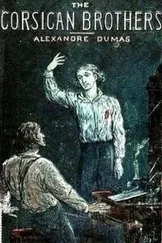Александр Дюма - The Conspirators
Здесь есть возможность читать онлайн «Александр Дюма - The Conspirators» весь текст электронной книги совершенно бесплатно (целиком полную версию без сокращений). В некоторых случаях можно слушать аудио, скачать через торрент в формате fb2 и присутствует краткое содержание. Год выпуска: 2014, Издательство: epubBooks Classics, Жанр: Историческая проза, на английском языке. Описание произведения, (предисловие) а так же отзывы посетителей доступны на портале библиотеки ЛибКат.
- Название:The Conspirators
- Автор:
- Издательство:epubBooks Classics
- Жанр:
- Год:2014
- ISBN:нет данных
- Рейтинг книги:3 / 5. Голосов: 1
-
Избранное:Добавить в избранное
- Отзывы:
-
Ваша оценка:
- 60
- 1
- 2
- 3
- 4
- 5
The Conspirators: краткое содержание, описание и аннотация
Предлагаем к чтению аннотацию, описание, краткое содержание или предисловие (зависит от того, что написал сам автор книги «The Conspirators»). Если вы не нашли необходимую информацию о книге — напишите в комментариях, мы постараемся отыскать её.
The Conspirators — читать онлайн бесплатно полную книгу (весь текст) целиком
Ниже представлен текст книги, разбитый по страницам. Система сохранения места последней прочитанной страницы, позволяет с удобством читать онлайн бесплатно книгу «The Conspirators», без необходимости каждый раз заново искать на чём Вы остановились. Поставьте закладку, и сможете в любой момент перейти на страницу, на которой закончили чтение.
Интервал:
Закладка:
"There are always two futures," said the mask; "there is the future of weak minds, and the future of strong minds. God has given man free will that he might choose. Your future depends on yourself."
"But we must know these two futures to choose the best."
"Well, there is one which awaits you, somewhere in the environs of Nevers, in the depth of the country, among the rabbits of your warren, and the fowls of your poultry–yard. This one will conduct you straight to the magistrate's bench of your parish. It is an easy ambition, and you have only to let yourself go to attain it. You are on the road."
"And the other?" replied the chevalier, visibly piqued at the supposition that in any case such a future could be his.
"The other," said the stranger, leaning her arm on that of the young man, and fixing her eyes on him through her mask; "the other will throw you back into noise and light—will make you one of the actors in the game which is playing in the world, and, whether you gain or lose, will leave you at least the renown of a great player."
"If I lose, what shall I lose?" asked the chevalier.
"Life, probably."
The chevalier tossed his head contemptuously.
"And if I win?" added he.
"What do you say to the rank of colonel of horse, the title of Grandee of Spain, and the order of the Saint Esprit, without counting the field–marshal's baton in prospective?"
"I say that the prize is worth the stake, and that if you can prove to me that you can keep your promise, I am your man."
"This proof," replied the mask, "must be given you by another, and if you wish to have it you must follow me."
"Oh!" said D'Harmental, "am I deceived, and are you but a genius of the second order—a subaltern spirit, an intermediate power? Diable! this would take away a little of my consideration for you."
"What does it matter if I am subject to some great enchantress, and she has sent me to you?"
"I warn you that I do not treat with ambassadors."
"My mission is to conduct you to her."
"Then I shall see her?"
"Face to face."―"Let us go, then."
"Chevalier, you go quickly to the work; you forget that before all initiations there are certain indispensable ceremonies to secure the discretion of the initiated."
"What must I do?"
"You must allow your eyes to be bandaged, and let me lead you where I like. When arrived at the door of the temple, you must take a solemn oath to reveal nothing concerning the things you may hear, or the people you may see."
"I am ready to swear by the Styx," said D'Harmental, laughing.
"No, chevalier," said the mask, in a grave voice; "swear only by your honor; you are known, and that will suffice."
"And when I have taken this oath," asked the chevalier, after an instant's reflection, "will it be permitted to me to retire, if the proposals made are not such as a gentleman may entertain?"
"Your conscience will be your sole arbiter, and your word the only pledge demanded of you."
"I am ready," said the chevalier.
"Let us go, then," said the mask.
The chevalier prepared to cross the room in a straight line toward the door; but perceiving three of his friends, who might have stopped him on the way, he made a turn, and described a curve which would bring him to the same end.
"What are you doing?" asked the mask.
"I am avoiding some one who might detain us."
"Ah!" said the mask, "I began to fear."
"Fear what?" asked D'Harmental.
"To fear that your ardor was diminished in the proportion of the diagonal to the two sides of a square."
"Pardieu!" said D'Harmental, "this is the first time, I believe, that ever a rendezvous was given to a gentleman at an opera ball to talk anatomy, ancient literature, and mathematics. I am sorry to say so, but you are the most pedantic genius I ever met in my life."
The bat burst out laughing, but made no reply to this sally, in which was betrayed the spite of the chevalier at not being able to recognize a person who appeared to be so well acquainted with his adventures; but as this only added to his curiosity, both descended in equal haste, and found themselves in the vestibule.
"What road shall we take?" asked the chevalier. "Shall we travel underground, or in a car drawn by griffins?"
"With your permission, chevalier, we will simply go in a carriage; and though you appear to doubt it, I am a woman, and rather afraid of the dark."
"Permit me, then, to call my carriage," said the chevalier.
"Not at all; I have my own."
"Call it then."
"With your permission, chevalier, we will not be more proud than Mahomet with the mountain; and as my carriage cannot come to us, we will go to it."
At these words the bat drew the chevalier into the Rue St. Honore. A carriage without armorial bearings, with two dark–colored horses, waited at the corner of the street. The coachman was on his seat, enveloped in a great cape which hid the lower part of his face, while a three–cornered hat covered his forehead and eyes. A footman held the door open with one hand, and with the other held his handkerchief so as to conceal his face.
"Get in," said the mask.
D'Harmental hesitated a moment. The anxiety of the servants to preserve their incognito, the carriage without blazon, the obscure place where it was drawn up, and the advanced hour of the night, all inspired the chevalier with a sentiment of mistrust; but reflecting that he gave his arm to a woman, and had a sword by his side, he got in boldly. The mask sat down by him, and the footman closed the door.
"Well, are we not going to start?" said the chevalier, seeing that the carriage remained motionless.
"There remains a little precaution to be taken," said the mask, drawing a silk handkerchief from her pocket.
"Ah! yes, true," said D'Harmental; "I had forgotten. I give myself up to you with confidence."
And he advanced his head. The unknown bandaged his eyes; then said—
"Chevalier, you give me your word of honor not to remove this bandage till I give you permission?"
"I do."
"It is well."
Then, raising the glass in front, she said to the coachman—
"You know where, Monsieur le Comte."
And the carriage started at a gallop.
Chapter V
The Arsenal
They both maintained a profound silence during the route. This adventure, which at first had presented itself under the appearance of an amorous intrigue, had soon assumed a graver aspect, and appeared to turn toward political machinations. If this new aspect did not frighten the chevalier, at least it gave him matter for reflection. There is a moment in the affairs of every man which decides upon his future. This moment, however important it may be, is rarely prepared by calculation or directed by will. It is almost always chance which takes a man as the wind does a leaf, and throws him into some new and unknown path, where, once entered, he is obliged to obey a superior force, and where, while believing himself free, he is but the slave of circumstances and the plaything of events.
It was thus with the chevalier. Interest and gratitude attached him to the party of the old court. D'Harmental, in consequence, had not calculated the good or the harm that Madame de Maintenon had done France. He did not weigh in the balance of genealogy Monsieur de Maine and Monsieur d'Orleans. He felt that he must devote his life to those who had raised him from obscurity, and knowing the old king's will, regarded as a usurpation Monsieur d'Orleans' accession to the regency.
Fully expecting an armed reaction against this power, he looked around for the standard which he should follow. Nothing that he expected happened; Spain had not even protested. Monsieur de Maine, fatigued by his short contest, had retired into the shade. Monsieur de Toulouse, good, easy, and almost ashamed of the favors which had fallen to the share of himself and his elder brother, would not permit even the supposition that he could put himself at the head of a party. The Marshal de Villeroy had made a feeble and systemless opposition. Villars went to no one, but waited for some one to come to him. D'Axelles had changed sides, and had accepted the post of secretary for foreign affairs. The dukes and peers took patience, and paid court to the regent, in the hope that he would at last take away from the Dukes of Maine and Toulouse the precedence which Louis XIV. had given them.
Читать дальшеИнтервал:
Закладка:
Похожие книги на «The Conspirators»
Представляем Вашему вниманию похожие книги на «The Conspirators» списком для выбора. Мы отобрали схожую по названию и смыслу литературу в надежде предоставить читателям больше вариантов отыскать новые, интересные, ещё непрочитанные произведения.
Обсуждение, отзывы о книге «The Conspirators» и просто собственные мнения читателей. Оставьте ваши комментарии, напишите, что Вы думаете о произведении, его смысле или главных героях. Укажите что конкретно понравилось, а что нет, и почему Вы так считаете.












